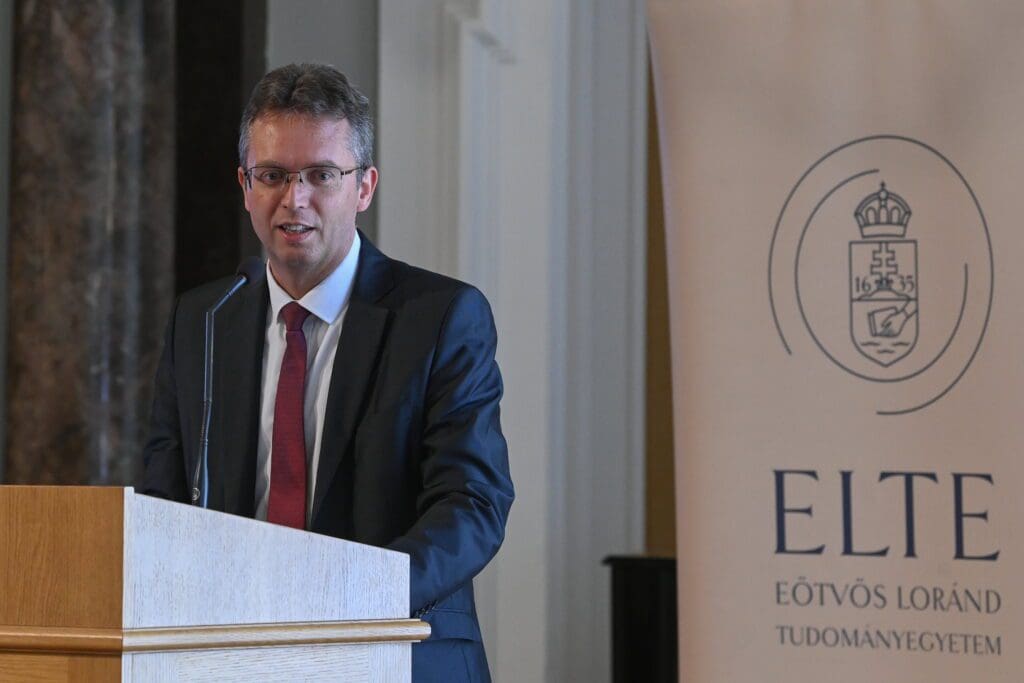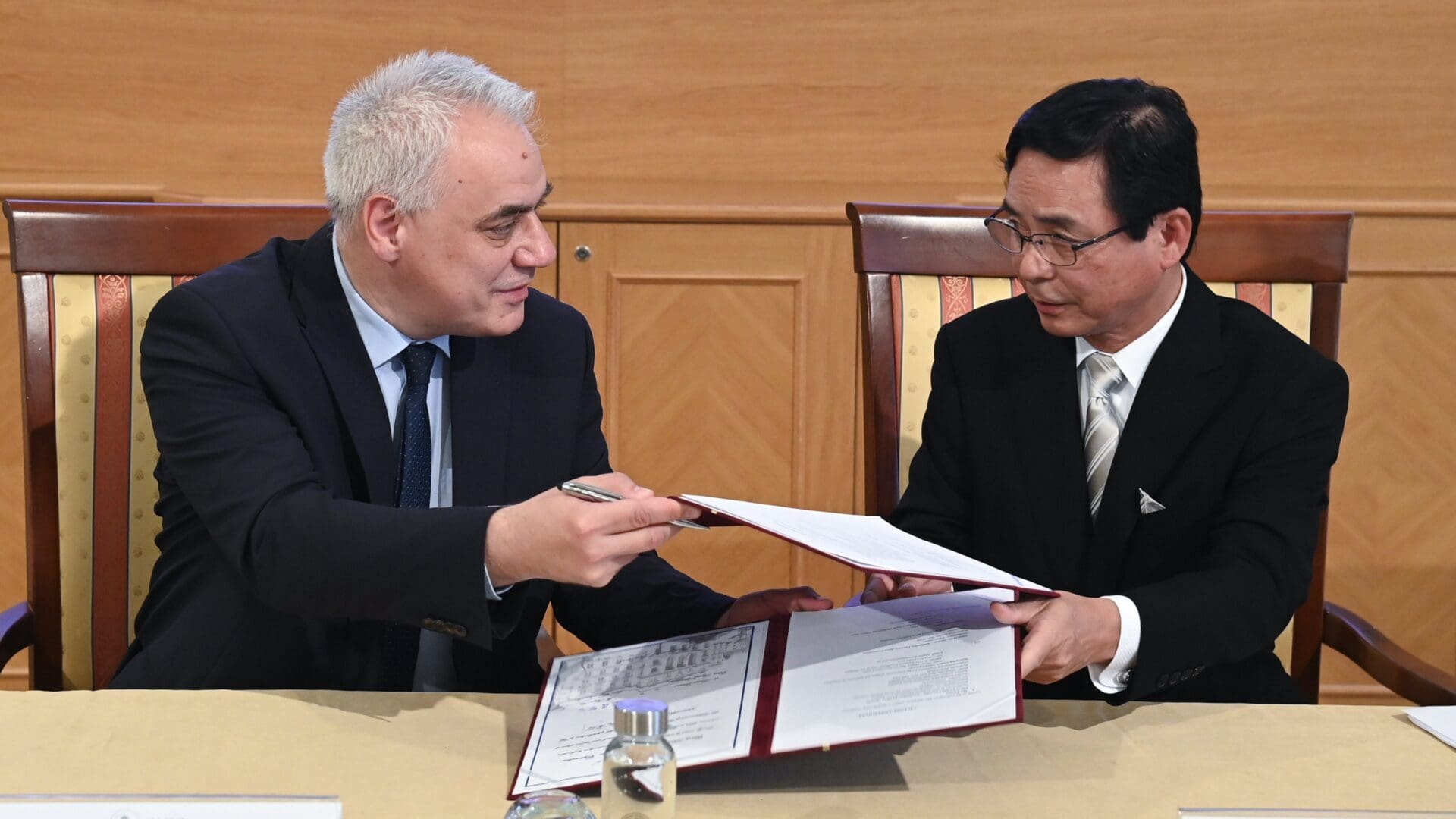Eötvös Loránd University (ELTE) and the Japanese spectroscopic company JASCO Corporation have signed an agreement focusing on pharmaceutical development, it was announced at the event of the University’s Innovation Centre’s Territorial Innovation Platform (TIP) in Budapest on Thursday.
State Secretary for Innovation and Higher Education at the Ministry of Culture and Innovation Balázs Hankó stated that the collaboration focusing on pharmaceutical development is in a promising area. The goal is for Hungary to become one of Europe’s top ten and the world’s top twenty-five innovators by 2030. To achieve this, the Neumann János Programme has been created, which outlines nine measures, with a strong emphasis on strengthening doctoral education and linking universities with the economy, emphasised Balázs Hankó. He added that Hungarian innovation is expanding year by year, but in order to reach the 2030 target, there is a need to compete with several other countries. The number of researchers must be increased because currently, there is one researcher-developer per one million inhabitants, and the aim is to raise this number to nine thousand by 2030. The number of patents needs to be doubled, the state secretary stated. Additionally, he mentioned the need to double the innovation capacity of Hungarian companies. There is significant scientific competition globally, and there is a need for even greater scientific performance, he stressed.

Hankó also mentioned that the goal of the Neumann János Programme is to connect universities and the economy, thereby strengthening intellectual property protection activities, facilitating the financing of innovative startups, and increasing the number of participants in doctoral education through expanding scholarships, among other things. The tasks mentioned included the result-based renewal of the Eötvös Loránd Research Network, the establishment of the National Innovation Agency, and the creation of a so-called Research Council.
Deputy Rector of ELTE Darázs Lénárd highlighted that the university places great emphasis on the utilisation of research, and significant research potential has already accumulated within the institution. These provide a solid foundation for the successful participation of the university in the Neumann János Programme. Outstanding research results are being achieved at the university, the societal, economic, and technological usefulness of which is unquestionable, he declared. As part of the collaboration between the Japanese company and the university, the market-leading instrument manufacturer, József Kardos, and András Micsonai, researchers at ELTE’s Department of Biochemistry, will apply their protein structure analysis method in JASCO Corporation’s devices. The new method is capable of estimating the secondary structure of proteins from the CD spectrum with much higher accuracy than previous algorithms.
Vice President of the National Research, Development and Innovation Office László Lengyel noted that his office is working to ensure that ‘knowledge can sell itself,’ and the renewed grant system serves this purpose.
JASCO Corporation is a market leader in the development and manufacturing of optical spectroscopy and chromatography instruments, using the latest innovative technologies. The company provides the instrumental background for scientific research and industrial applications in 57 countries across five continents.
Related articles:








